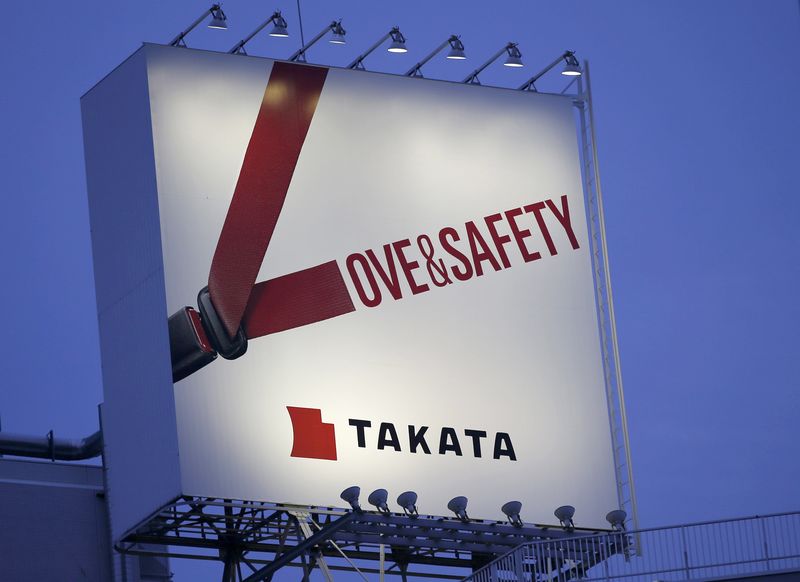By Paul Lienert
DETROIT (Reuters) - Honda Motor Co said it was aware of a ruptured Takata air bag inflator in a car that was covered by a 2002 recall but the inflator design was different from one that ruptured in a 2004 accident.
The 2004 accident, which was not publicly disclosed until 2009, had previously been the first disclosed instance of a ruptured Takata inflator in a Honda car.
A Honda spokesman on Thursday said the 2002 recall "is unrelated to all later ruptures" and "involves a prior generation of air bag inflators than the ones that are the subject of subsequent recalls."
The air bags in both Honda cars were supplied by Japan's Takata Corp, which made the air bags installed in more than 10 million cars from Honda and other manufacturers that have been recalled since 2008.
A Takata spokesman on Thursday confirmed that the ruptured inflator involved in the 2002 Honda recall was of a different design that the ones involved in later recalls that began in 2008.
Inflators in the later-model Takata air bags have been susceptible to rupture, especially when exposed to moisture, and can spray hot metal fragments into vehicle occupants. The defective air bags and inflators have been linked to at least five deaths, all in Honda cars.
U.S. government safety records showed that Honda recalled a small number of cars equipped with Takata air bags in March 2002, two years before the first known injury that Honda and Takata have linked to a defective inflator, Reuters revealed on Wednesday.
In its official recall notice in 2002, Honda told the National Highway Traffic Safety Administration that inflators in passenger air bags in the 2000 Honda Accord and 2000 Acura TL could rupture because of improper welds.
In the same notice, Honda said a dealer in November 2001 reported an "improper deployment" of a Takata air bag in an Accord, and that Honda and Takata immediately began an investigation and inspected the vehicle. No passenger was seated in the car when the air bag deployed, Honda said, and no injuries were reported.
A senior Honda executive told a U.S. Senate hearing last week that the automaker first learned of an inflator rupture in 2004.
"This remained the only rupture we were aware of until three years later," Rick Schostek, Honda North America executive vice president, told the hearing.
On Thursday, a Honda spokesman said Schostek was referring to the later-model inflators, not the ones involved in the 2002 recall. That recalled involved 2000 model year cars. The spokesman said the inflator design was changed for the 2001 model year.
The 2001 accident involved in the 2002 recall is the first incident of a ruptured Takata inflator in a Honda vehicle that Honda is aware of, the Honda spokesman said Thursday.
"The issue identified in the 2002 inflator recall is quite different from the propellant-related issues identified" in later-model inflators referenced by Schostek, the spokesman said.
The ruptured inflator involved in the 2002 Honda recall was not mentioned by Schostek in the Senate hearing because "it is not relevant to the issues associated with the Takata air bag inflator ruptures that were the subject of the hearing," the spokesman said.
The spokesman also said the propellant in the inflators involved in the 2002 recall "is of a different formula and physical shape than the propellant used in later designs that have been recalled."
A congressional subcommittee has scheduled a hearing next Wednesday on the Takata recalls.
(Reporting by Paul Lienert in Detroit; Editing by Cynthia Osterman)
